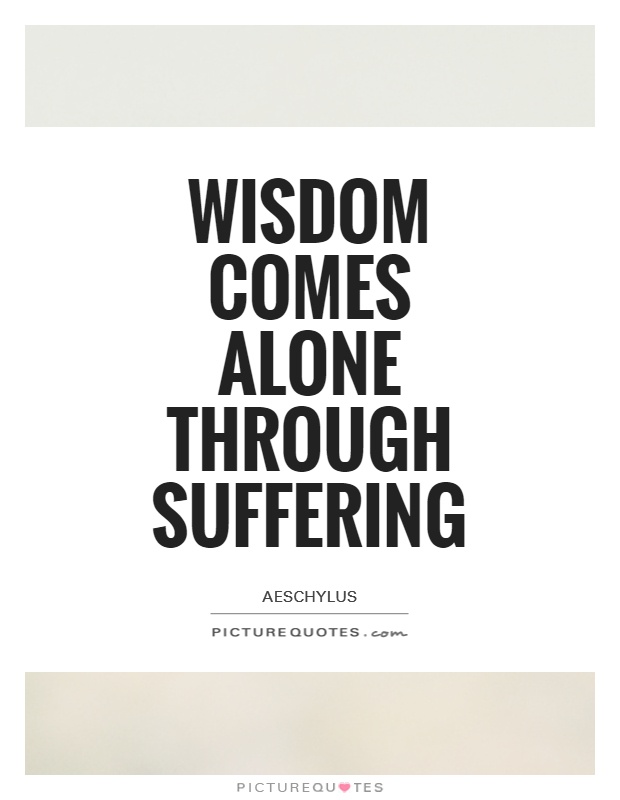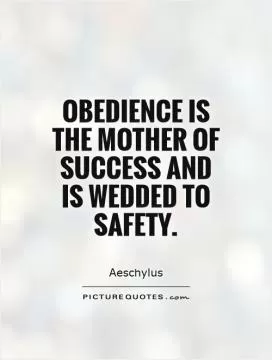Wisdom comes alone through suffering

Wisdom comes alone through suffering
In the works of Aeschylus, the idea that wisdom comes alone through suffering is a recurring theme that is explored in depth. Aeschylus, one of the great tragedians of ancient Greece, often delved into the complexities of human experience and the ways in which suffering can lead to a deeper understanding of the world and oneself.One of Aeschylus' most famous plays, "Prometheus Bound," exemplifies this theme of wisdom through suffering. In the play, Prometheus, a Titan who defies the gods by giving fire to humanity, is punished by Zeus and bound to a rock for eternity. Despite his suffering, Prometheus remains defiant and refuses to bow down to the will of the gods. Through his suffering, Prometheus gains a deeper understanding of the nature of power and the consequences of defying the gods. His wisdom is hard-won, but it is through his suffering that he is able to see the world in a new light.
Another example of this theme in Aeschylus' work can be found in his play "The Oresteia." In this trilogy of plays, the House of Atreus is plagued by a cycle of violence and revenge that ultimately leads to the downfall of the family. Through the suffering of characters like Agamemnon and Orestes, Aeschylus explores the destructive nature of vengeance and the importance of breaking the cycle of violence. It is through their suffering that the characters in "The Oresteia" come to understand the consequences of their actions and the need for forgiveness and reconciliation.
Overall, Aeschylus' exploration of the theme of wisdom through suffering is a powerful and thought-provoking one. Through his plays, he challenges his audience to consider the ways in which suffering can lead to a deeper understanding of the world and ourselves. By grappling with the complexities of human experience, Aeschylus reminds us that wisdom is often born out of struggle and hardship.












 Friendship Quotes
Friendship Quotes Love Quotes
Love Quotes Life Quotes
Life Quotes Funny Quotes
Funny Quotes Motivational Quotes
Motivational Quotes Inspirational Quotes
Inspirational Quotes